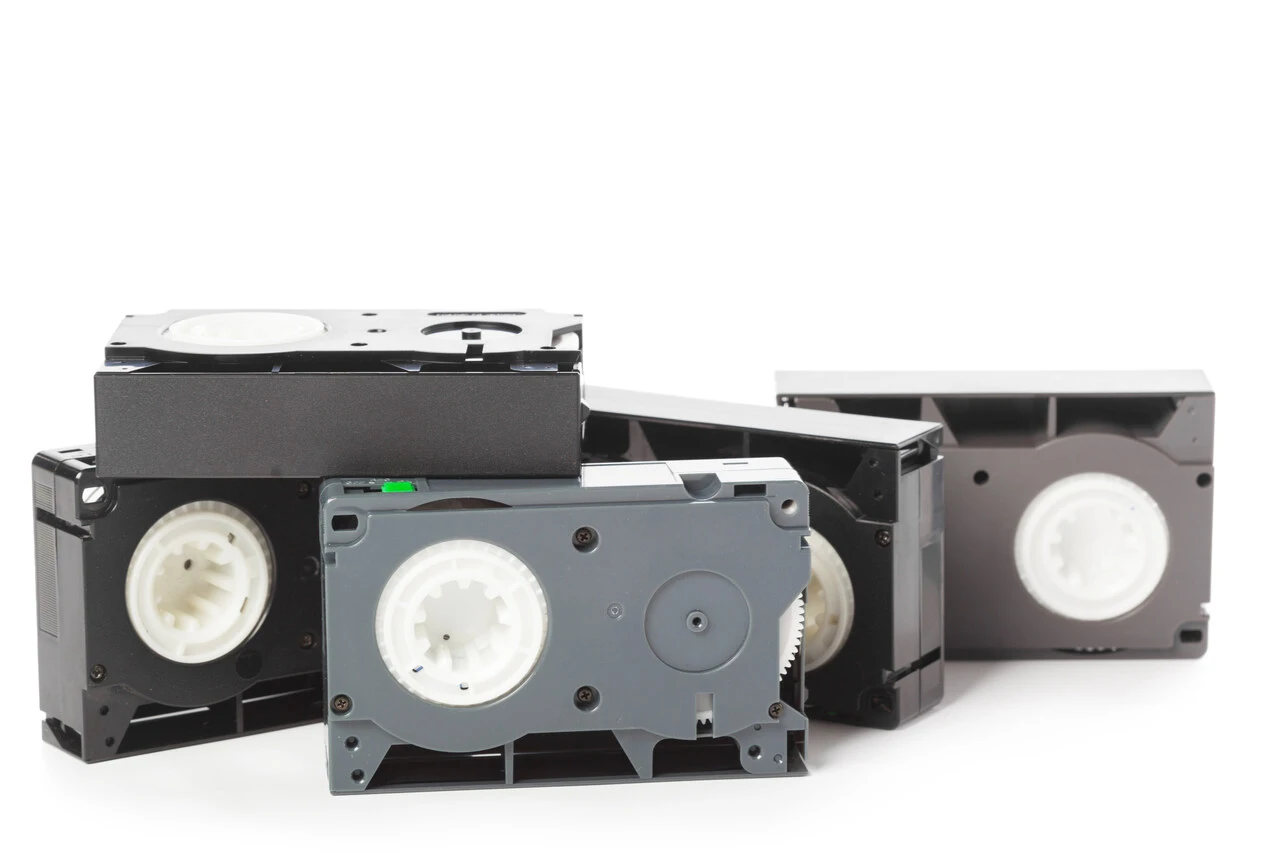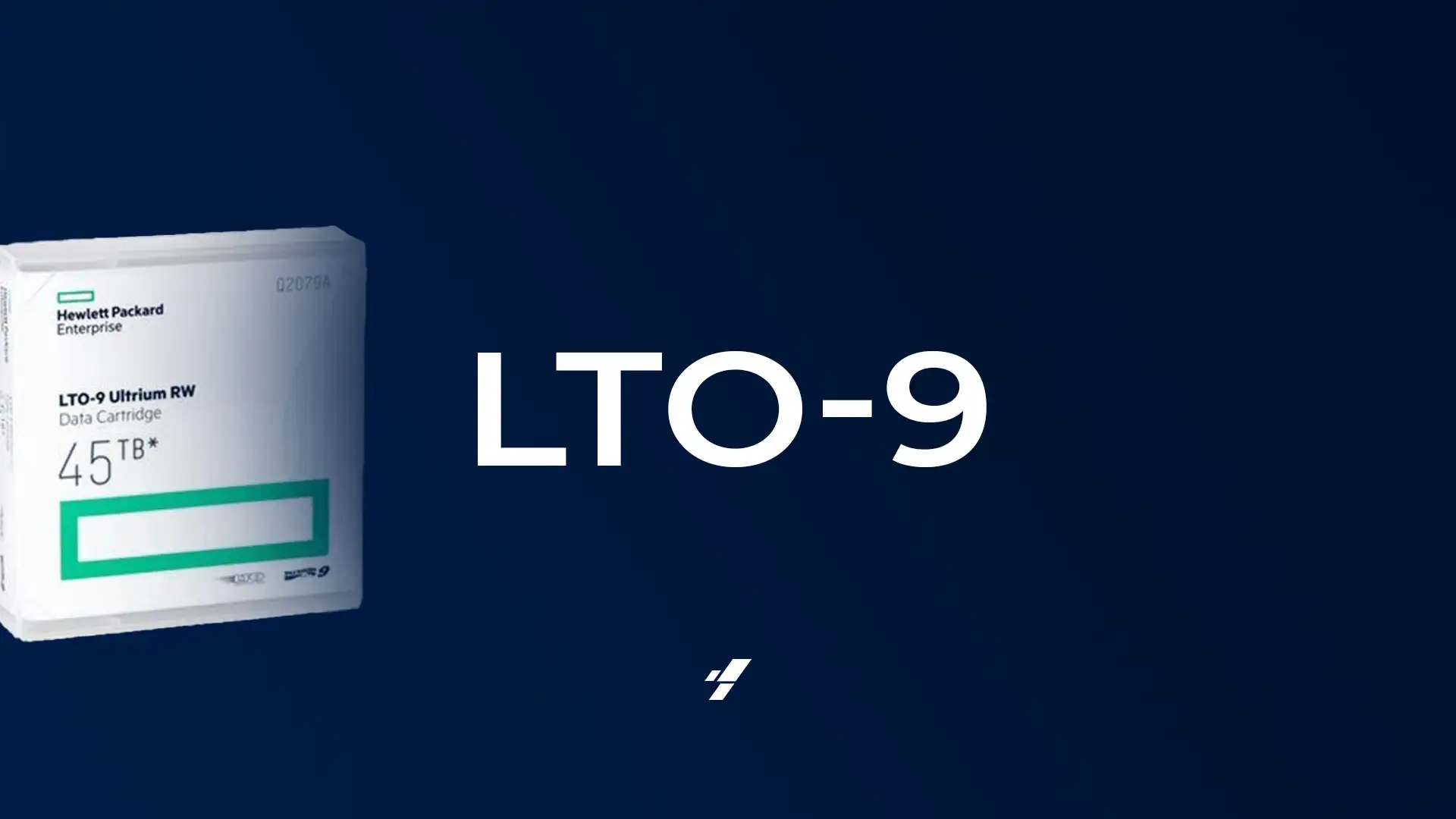LTO tapes, the acronym for Linear Tape-Open, represent a magnetic tape data storage technology developed in the late 1990s as an open format by a consortium of leading technology companies. Since then, they have become a standard solution for storing large volumes of data, especially for backup and long-term archiving.
The magic behind LTO tapes lies in their ability to store a significant amount of data on a reliable, low-cost physical medium. With each new generation, the storage capacity of LTO tapes increases, offering scalable solutions for companies’ growing data needs.
Advantages of using LTO tapes
One of the main advantages of LTO tapes is their durability and reliability. Designed to last for decades, they are an ideal choice for data archiving. In addition, LTO tapes are more cost-effective and energy-efficient compared to other storage media, such as hard disks and cloud storage. Some of the main advantages include:
- High Storage Capacity: Each generation of LTO tapes offers significantly more storage capacity than its predecessor. This allows large amounts of data to be stored on a compact physical medium, making it easier to manage and organize data storage.
- Cost-effectiveness: Compared to other forms of storage, such as hard disks and cloud storage, LTO tapes are a more cost-effective option for long-term data storage. The cost per gigabyte of tape storage is generally lower, and since data can be stored offline, there are no significant recurring costs associated with its maintenance.
- Durability and Longevity: LTO tapes are designed for a long lifespan and can safely store data for 15 to 30 years under the right storage conditions. This makes them ideal for long-term archiving, where data integrity over time is critical.
- Reliability: LTO technology includes advanced error correction features, guaranteeing a high reliability rate when reading and writing data. This is essential for restoring backups, where data loss can be catastrophic.
- Data Security: LTO tapes support native data encryption, providing an additional layer of security against unauthorized access. In addition, the WORM (Write Once, Read Many) option prevents data from being altered once it has been recorded, ideal for meeting regulatory and compliance requirements.
- Scalability: The LTO tape system allows for effective scalability. As storage needs increase, more tapes can be added without the need to reconfigure the existing infrastructure. This makes LTO tapes a highly scalable solution for data growth.
- Portability: LTO tapes are easily transportable, allowing off-site storage for data protection against natural disasters, theft or damage to the physical environment. This portability ensures an additional level of data protection across geographical dispersion.
- Energy Efficiency: As LTO tapes are stored offline (they don’t need electricity to keep the data stored), they offer significantly greater energy efficiency compared to storage devices that need to be constantly switched on. Not only does this reduce operating costs, but it also contributes to more efficient storage.
Practical Applications of LTO Tapes
LTO (Linear Tape-Open) tapes are used in a wide range of practical applications, especially in environments that require large-scale, reliable and long-term data storage. Some of the most common applications include:
- Backup and Disaster Recovery: One of the most traditional applications of LTO tapes is for data backup and disaster recovery. Organizations that manage large volumes of data use LTO tapes to create regular backups, ensuring that data can be recovered in the event of system failures, data corruption or natural disasters.
- Data archiving: LTO tapes are ideal for long-term data archiving due to their durability, high storage capacity and low cost per gigabyte. Institutions such as libraries, government archives and corporations use tapes to preserve historical records, financial data, corporate emails and legal documents for decades.
- Meeting Compliance Standards: In regulated industries such as healthcare, finance and legal services, storing data on LTO tapes can help meet legal and compliance requirements such as HIPAA, SOX and GDPR. WORM (Write Once, Read Many) storage capacity and native encryption offer additional guarantees that data is kept secure and unaltered.
- Media and Entertainment Sector: The media and entertainment sector, which deals with large volumes of digital data such as high-resolution videos, special effects and audio files, uses LTO tapes for content archiving. The high storage capacity and cost-efficiency of the tapes are ideal for preserving large libraries of digital content.
- Scientific Research and Education: Research institutions and universities often generate and store huge amounts of data from research, experiments and studies. LTO tapes provide a cost-effective, long-term storage solution to preserve this data for future analysis and reference.
- Healthcare sector: To store medical records, diagnostic images such as MRIs and CT scans, and research data, the healthcare sector uses LTO tapes because of their reliability, data security and compliance with data privacy regulations.
- Big Data and Data Analysis: As organizations explore the potential of big data, they turn to LTO tapes as a cost-effective way to store large sets of data collected from multiple sources for future analysis.
- Intellectual Property Protection: Technology companies, patent offices and software developers use LTO tapes for the secure archiving of source code, project documentation and other valuable digital assets, protecting intellectual property from loss or theft.
These applications demonstrate the versatility of LTO tapes, making them a valuable storage solution for a wide variety of industries and data needs.
The use of LTO tapes is not limited to large corporations or specific industries. From small businesses to large data centers, tapes offer a versatile solution for backing up and archiving data, protecting critical information from unexpected loss.
Comparison: LTO Tapes vs. Other Storage Media
The comparison between LTO (Linear Tape-Open) tapes and other storage media, such as hard disks (HDDs), solid-state drives (SSDs) and cloud storage, can be analyzed from various aspects, including capacity, cost, durability, access speed, and ideal applications. Each storage medium has its advantages and disadvantages, depending on the specific data storage and retrieval needs.
Storage Capacity
- LTO tapes: They offer high storage capacity, with each new generation significantly increasing capacity. The latest versions can store several tens of terabytes of data on a single tape.
- HDDs: Available in various capacities, usually up to a few terabytes per unit. To increase capacity, more drives are needed, which increases the cost and complexity of the infrastructure.
- SSDs: They tend to have smaller capacities than HDDs due to the higher cost per gigabyte, although they offer better performance.
- Cloud Storage: Theoretically offers unlimited capacity, depending on the cloud service and subscription plan, but at a recurring monthly or annual cost.
Cost
- LTO tapes: Low cost per gigabyte, especially for long-term storage and large volumes of data. The initial cost of the tape drive can be high, but the marginal cost of additional tapes is relatively low.
- HDDs: Lower cost per gigabyte than SSDs, but higher than tapes for large-scale storage.
- SSDs: More expensive per gigabyte than HDDs and tapes, but they offer better performance.
- Cloud Storage: Implies recurring costs based on usage. Although it seems convenient for accessing and sharing data, it can become costly in the long term, especially for large volumes of data.
Durability and longevity
- LTO tapes: Designed for long life and can store data securely for 15 to 30 years if stored correctly.
- HDDs and SSDs: Shorter lifespan compared to tapes. HDDs are susceptible to mechanical failure, while SSDs have a limited number of write/read cycles.
- Cloud Storage: Durability depends on the service provider’s infrastructure and policies, but is generally considered high due to built-in redundancies.
Access speed
- LTO tapes: Sequential access, which means that data recovery can be slower compared to other media. Not ideal for frequent access or data requiring high read/write speeds.
- HDDs:They offer random access to data, suitable for everyday use and applications that require constant access to data.
- SSDs: Provide the highest read and write speeds, making them ideal for operating systems, applications and frequently accessed data storage.
- Cloud Storage: Access speed can vary significantly depending on the internet connection and the latency of the cloud service.
Ideal applications
- LTO tapes: Best for long-term backup, archiving and disaster recovery of large volumes of data.
- HDDs: Good option for mass data storage with moderate access.
- SSDs: Ideal for operating systems, applications and databases that benefit from fast data access.
- Cloud Storage: Convenient for data sharing, collaboration and remote access, as well as for applications that require rapid scalability.
When comparing LTO tapes with other forms of storage, such as SSDs, HDDs and cloud storage solutions, tapes stand out for their long-term storage capacity and cost-effectiveness, especially for large volumes of data. It’s worth remembering that all these storage devices can suffer data loss, no device is 100% fail-safe, so Digital Recovery offers exclusive solutions for magnetic tapes recovery and all other storage devices.



